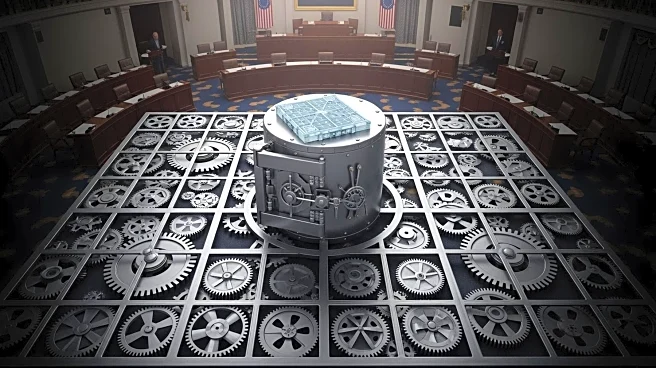What's Happening?
The Senate failed to advance a year-long appropriations bill to fund the Pentagon, as Democrats blocked the measure in a 50 to 44 vote. The bill required 60 votes to proceed, with only three Democrats supporting
it. The vote reflects the ongoing stalemate in the Senate, where Democrats demand an extension of expiring health insurance tax credits in exchange for their support. Senate Majority Leader John Thune criticized Democrats for not supporting the bill, which would pay military personnel. The shutdown has forced lawmakers to consider alternative funding approaches, but bipartisan agreement remains elusive.
Why It's Important?
The failure to advance the Pentagon funding bill underscores the broader challenges in resolving the government shutdown, which affects military operations and federal employees. The impasse highlights the political divide over budget priorities, with Democrats focusing on health care and social programs, while Republicans emphasize defense funding. The situation impacts national security, as military pay and operations face uncertainty. The shutdown also affects public services and economic stability, with potential long-term consequences for government functionality and public trust. The political dynamics could influence future legislative strategies and electoral outcomes.
What's Next?
The Senate may attempt to advance other appropriations bills, including those for the Departments of Labor, Health and Human Services, and Education. However, unanimous consent is required, and bipartisan agreement remains challenging. The Trump administration's directive to use available Pentagon funds to pay military personnel is a temporary fix, with lawmakers needing to find a permanent solution. Political leaders must navigate these complexities to prevent further disruptions and address budgetary disagreements. The ongoing negotiations will require compromise and strategic planning to resolve the shutdown and restore government operations.
Beyond the Headlines
The shutdown and funding impasse reflect deeper issues in U.S. political processes, including the challenges of bipartisan cooperation and the influence of executive actions on legislative powers. The situation raises questions about the balance of power between Congress and the presidency, particularly in budgetary matters. Additionally, the focus on defense spending versus social programs highlights ongoing debates about national priorities and resource allocation. These dynamics could influence future legislative strategies and political campaigns, as parties seek to address voter concerns and policy goals.










